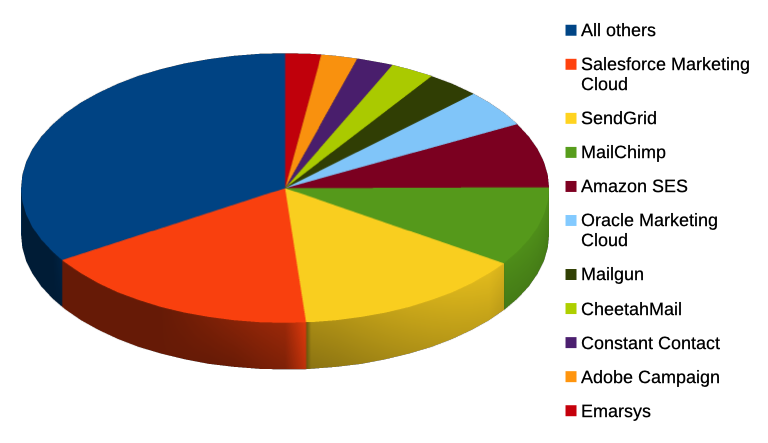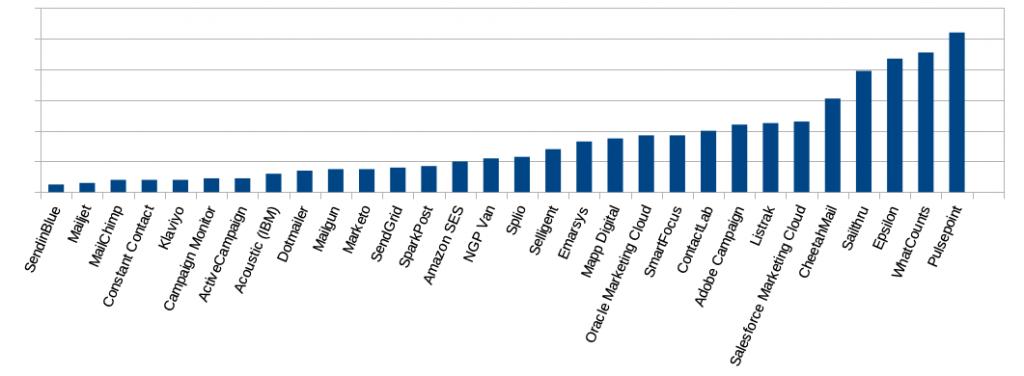May 2020 in Spamtraps: ESPs

Here’s a monthly summary of our findings, the first in a long time.
| RATING | PARTICIPANT | PERCENTAGE | NOTES | MOST PROMINENT CUSTOMER |
|---|---|---|---|---|
| 0 | All others | 33.4% | 254 ESPs identified | |
| 1 | Salesforce Marketing Cloud | 17.0% | Marcus & Millichap (6%) | |
| 2 | SendGrid | 14.0% | Walmart (4%) | |
| 3 | Mailchimp | 9.4% | Not meaningful | |
| 4 | Amazon SES | 7.6% | Netflix (17%) | |
| 5 | Oracle Marketing Cloud | 4.4% | Joann.com (6%) | |
| 6 | Mailgun | 3.2% | Thedailygrind.news (26%) | |
| 7 | CheetahMail | 2.7% | Talbots.com (8%) | |
| 8 | Constant Contact | >2.2% | Not meaningful | |
| 9 | Adobe Campaign | <2.2% | Adobe itself (11%) | |
| 10 | Emarsys | <<2.2% | Payback.it (7%) |
with their shares of the total and most prominent customers
The percentage of mail identified as being sent by an ESP was 2.8%, down a few notches from April. The total volume of mail was 25% higher than in April, which sounds a bit like a botnet or two might have been making the rounds.

The “relative badness” figure is obtained by dividing the total number of messages sent to us by an ESP by the apparent number of its customers participating in it. Out of the top three by volume, for example, SendGrid seems to have about 2.5x the number of customers sending to us compared to Salesforce, and Mailchimp have almost 3.5x as many.
The biggest single customers for the ones in the top end on this chart are the GOP for Pulsepoint (20%), Costco for WhatCounts (44%) and DICK’s Sporting Goods for Epsilon (49%).
That’s all, folks! Get in touch on LinkedIn or email if you have any questions on any of the above. See you (however virtually) next week at M3AAWG #49!